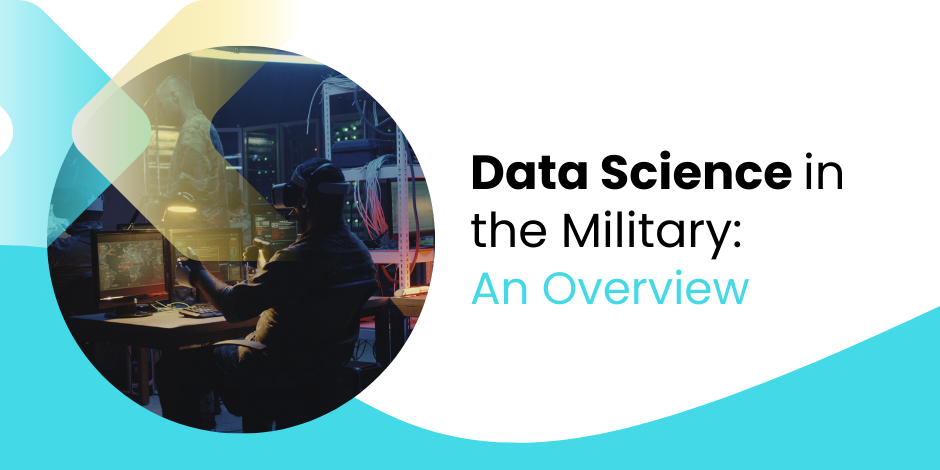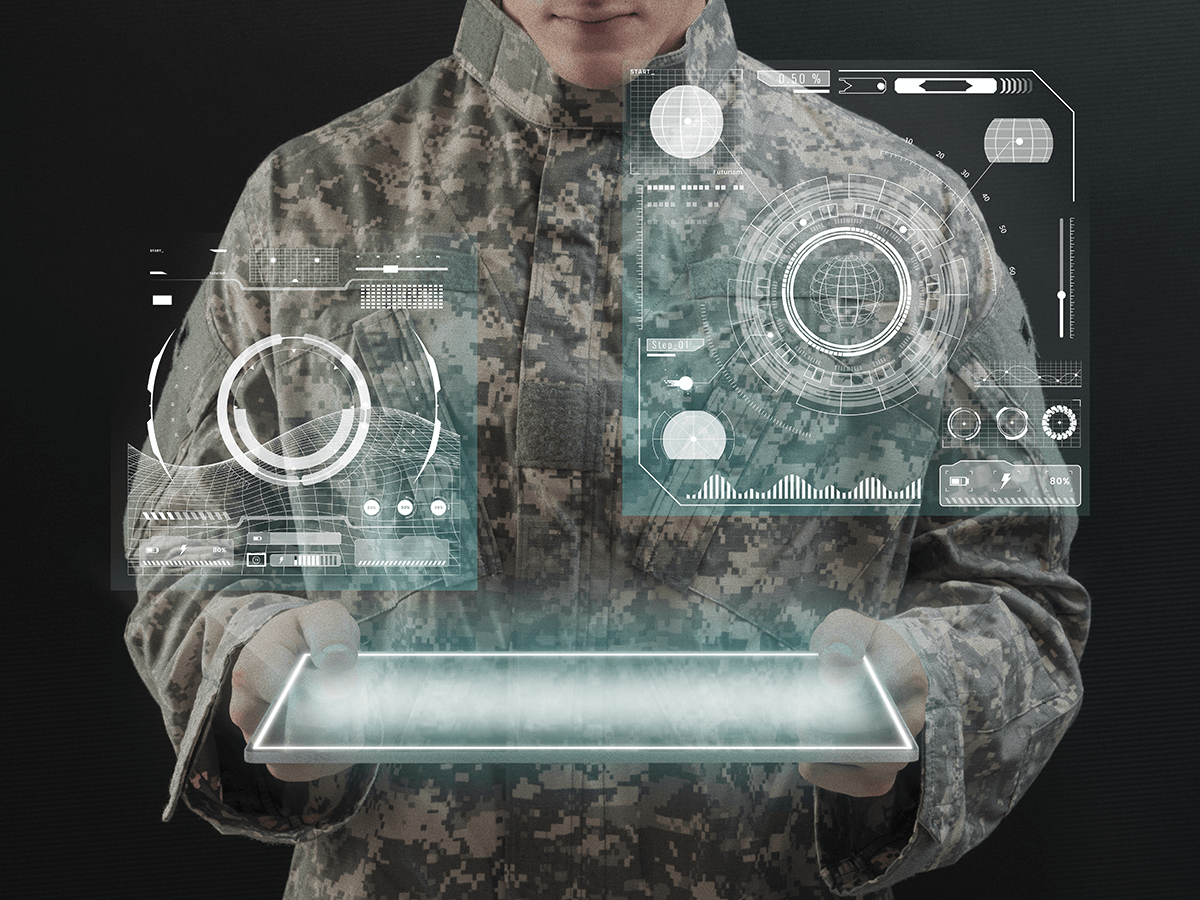Data Science in the Military: An Overview

Stay Informed With Our Weekly Newsletter
Receive crucial updates on the ever-evolving landscape of technology and innovation.
Data science has become integral to various sectors, including the military.
With its ability to gather, analyse, and interpret large amounts of data, data science in the military is crucial to enhancing operations and decision-making processes.
Understanding the concept of data science

Data science involves the extraction of valuable insights and knowledge from data using a combination of statistical analysis, machine learning techniques, and algorithms.
It encompasses collecting, organising, and analysing large volumes of data to uncover patterns, trends, and correlations.
By leveraging data science methodologies, the military can utilise vast amounts of information to understand complex scenarios better and make informed decisions.
Data science has revolutionised how organisations across various sectors approach problem-solving and decision-making.
The ability to harness the power of data has opened up new possibilities and opportunities for businesses and institutions alike.
With the exponential growth of data in the digital age, data science has become an essential discipline for organisations looking to stay competitive and innovative.
Data science in the military
Throughout history, the military has recognised the value of data in gaining a tactical advantage.
From ancient civilisations using maps and census data to modern-day intelligence agencies leveraging satellite imagery and signals intelligence, data has played a critical role in military operations.
Today, data science provides the military with enhanced capabilities to further collect, analyse, and exploit data to bolster their strategic and tactical efforts.
The historical use of data science in the military
Data has been used in military operations for centuries.
Ancient armies relied on intelligence gathered from scouts and spies, and more modern armies used coded messages during World War II.
The military has consistently recognised the importance of data in warfare.
However, with advancements in technology and the availability of vast amounts of data, the military can now harness the power of data science to extract valuable insights and make more informed decisions.
Modern applications of data science in the military
Modern military operations heavily rely on data science techniques.
The military can obtain comprehensive situational awareness by integrating intelligence sources, such as social media analytics, satellite imagery, and sensor data.
This allows for better decision-making and the ability to respond more effectively to dynamic environments.
Additionally, data science assists in predictive modelling, enabling the military to anticipate threats, optimise resource allocation, and improve mission planning.
The impact of data science on military operations

Data science has revolutionised military operations, significantly benefiting strategic decision-making, military intelligence, and surveillance capabilities.
Enhancing strategic decision-making
Data science enables military commanders to analyse vast amounts of data to make informed decisions at a strategic level.
By leveraging data-driven insights, commanders can assess the effectiveness of past operations, evaluate potential courses of action, and develop comprehensive strategies.
Through simulation modelling and advanced analytics, data science empowers military planners to anticipate outcomes and optimise resource allocation, ensuring the efficient execution of missions.
Improving military intelligence and surveillance
Data science plays a crucial role in modern military intelligence by enhancing the analysis and interpretation of data collected from various sources.
The military can quickly sift through vast data by employing machine learning algorithms to identify patterns, anomalies, and potential threats.
Moreover, data science assists in developing sophisticated surveillance systems, enabling real-time monitoring, threat detection, and early warning capabilities.
This enhances the military’s ability to respond rapidly and effectively to emerging threats.
Challenges and ethical considerations of using data science in the military
While data science offers significant advantages to the military, it also presents challenges and ethical concerns that must be addressed.
Balancing data use with privacy and security
The extensive use of data in the military raises questions regarding privacy and security.
As the military collects and analyses vast amounts of data, it must balance gathering intelligence and respecting individual privacy rights.
Robust security measures must also be in place to protect classified and sensitive information from unauthorised access, ensuring the integrity and confidentiality of data.
Ethical implications of data science in warfare
Data science in warfare raises ethical questions surrounding the potential application and consequences of technology-driven decision-making.
The development and use of autonomous weapons systems, for example, have sparked debates about the role of ethics in military operations.
The military must establish clear guidelines and adhere to international legal frameworks to ensure data science’s responsible and ethical use in warfare.
The future of data science in the military

The future of data science in the military presents exciting opportunities and potential challenges.
Emerging trends and technologies
Ongoing technological advancements, such as artificial intelligence, robotics, and quantum computing, will continue to shape the future of data science in the military.
These emerging trends offer the potential for enhanced data processing capabilities, increased automation, and improved decision-making.
The military must stay at the forefront of technological innovation to leverage these advancements effectively.
Potential benefits and risks for future warfare
Data science will continue to play a pivotal role in future warfare, enabling the military to gain a competitive edge.
It can facilitate faster and more accurate decision-making, optimise resource allocation, and improve operational efficiency.
However, the increasing reliance on data-driven systems may also expose the military to cyber threats and vulnerabilities.
It is crucial to consider the potential risks and develop robust cyber security measures to safeguard critical military systems and operations.
Conclusion
Data science has become integral to military operations, offering numerous benefits regarding strategic decision-making, military intelligence, and surveillance capabilities.
However, as with any powerful technology, ethical considerations and challenges must be carefully addressed.
The future of data science in the military holds immense potential for revolutionising warfare.
The military must stay at the forefront of technological advancements to effectively leverage the power of data science for military operations.
Are you considering data science as your next career move?
Unlock your potential and join our community of aspiring data science professionals.
If you’re interested in pursuing a career in data science, you may want to explore Institute of Data’s 3-month full-time or 6-month part-time Bootcamps.
To find out more about our programs led by industry professionals, you can download a Data Science & AI Course Outline.




